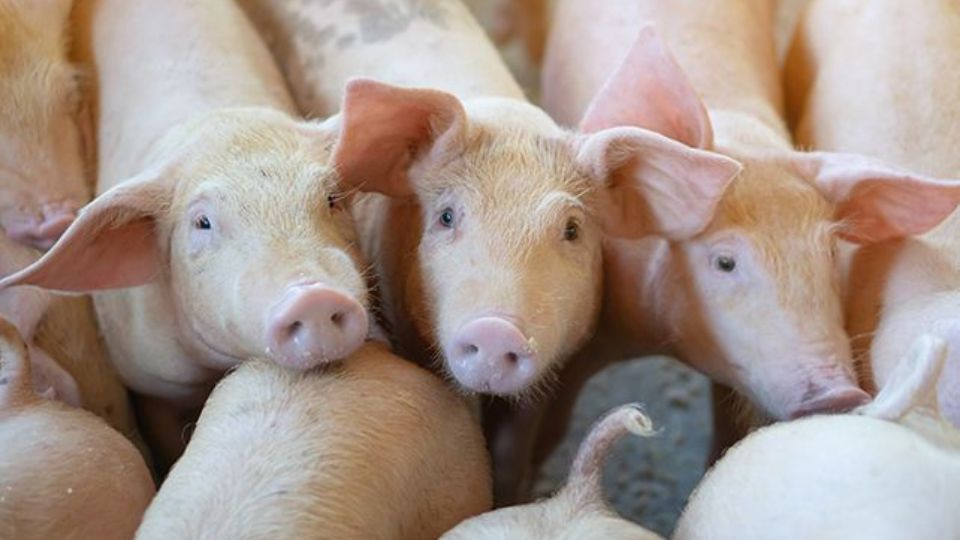A researcher from Kansas State University has received additional support to combat a major global threat to pigs and swine production. This industry is worth $57 billion in the United States.
The Foundation for Food & Agriculture Research (FFAR) has given a $1 million grant to Waithaka Mwangi, a professor at K-State’s College of Veterinary Medicine. The grant will support Mwangi’s work to create vaccines that can quickly and safely prevent the African Swine Fever virus.
Elanco Animal Health, K-State’s Office of the Vice President for Research, Kansas State University Innovation Partners, and MEDIAN Diagnostics Inc. contributed funds to make a total investment of $2,645,427.
ASFV is a disease that pigs can easily catch and it can quickly cause death. Right now, there is no treatment or vaccine for the virus that you can buy. Mwangi and his team are working quickly to create and test a vaccine that could keep pigs safe from the virus.
“According to Mwangi, there are certain proteins in the virus that can trigger an immune response in swine.” “I am studying which proteins from the African Swine Fever Virus (ASFV) can trigger a protective immune response. I am also trying to determine the best amount of these proteins to use, the most effective method of immunization, and a way to tell if a pig is infected with the virus or has been vaccinated against it.” This grant, called FFAR Seeding Solutions, gives us the money to get more support from other people involved in the project. We need this support to fund the research that will prove if a prototype vaccine works well. So far, the vaccine has shown good results.
Also Read: A Jersey Mother Walks Between Her 2-year-old and a Mountain Lion
Mwangi’s work is important because swine producers need a solution to protect their herds from African Swine Fever Virus (ASFV). Currently, there is no vaccine or treatment available, so the only way to control the virus is by implementing strict biosecurity measures like isolating or removing infected pigs.
ASFV, which stands for African Swine Fever Virus, has been present in Africa for many years. However, the virus has now started to spread to other parts of the world. Recently, cases of ASFV have been detected in the Dominican Republic and Haiti.
Outbreaks in the United States would be extremely damaging, not only for the pork industry, but also for other agricultural products like corn and soy that depend on it.
“If the virus reaches the U.S., the research findings could help slow down the spread of the virus, protect millions of pigs in the U.S., and ensure the safety of our food supply,” explained Jasmine Bruno, Ph.D., who is the scientific program director for Cultivating Thriving Production Systems at FFAR. Mwangi’s research team is also working on safety concerns and production constraints so that regulatory agencies can approve the use of this vaccine.



Leave a Reply